A bad week for the Greens: Natalie Bennett's embarrassing radio interview is followed by Brighton council's failure to set a budget
So what next for the alternative party? It's over to former leader Caroline Lucas to find out
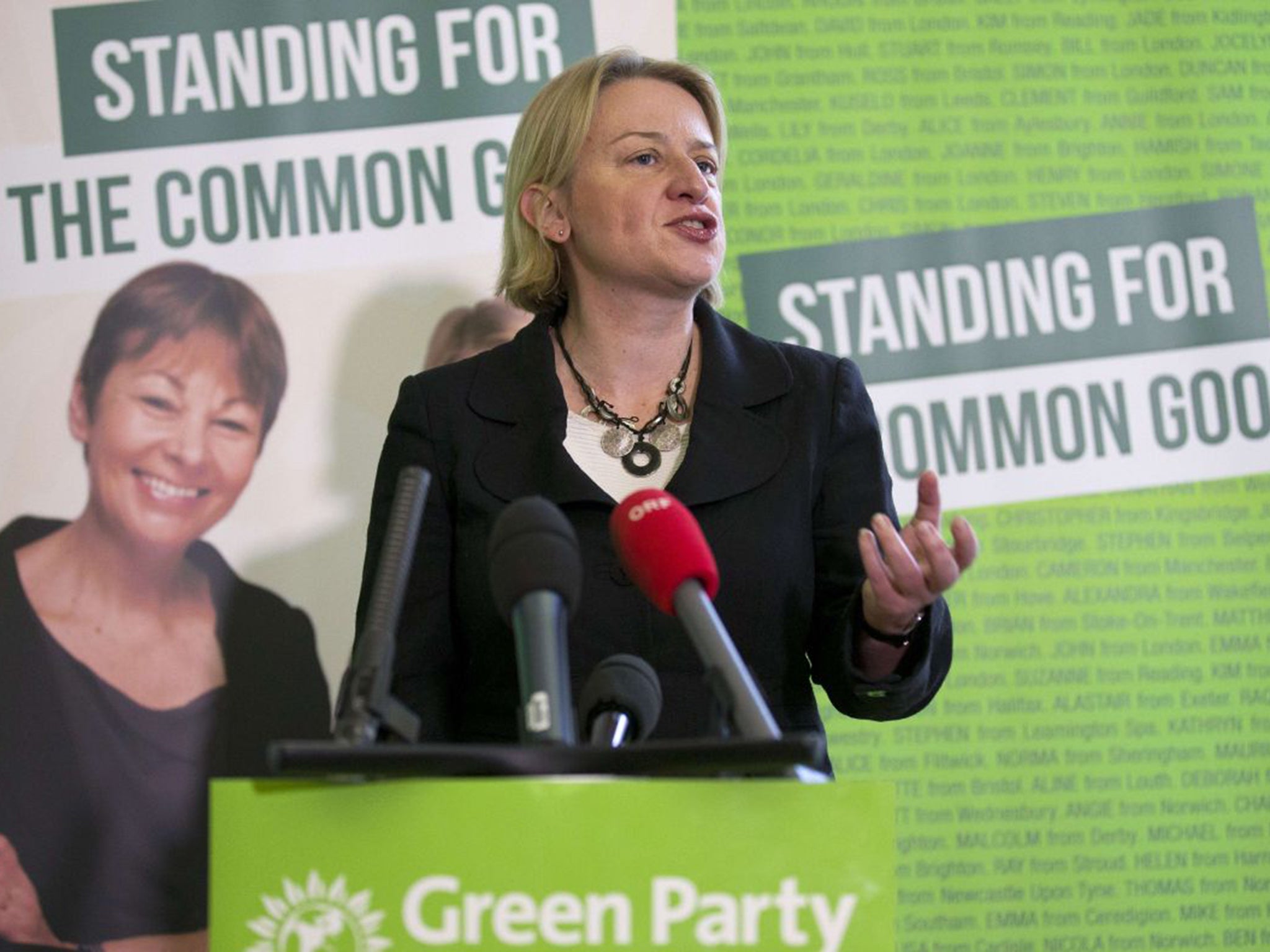
Your support helps us to tell the story
From reproductive rights to climate change to Big Tech, The Independent is on the ground when the story is developing. Whether it's investigating the financials of Elon Musk's pro-Trump PAC or producing our latest documentary, 'The A Word', which shines a light on the American women fighting for reproductive rights, we know how important it is to parse out the facts from the messaging.
At such a critical moment in US history, we need reporters on the ground. Your donation allows us to keep sending journalists to speak to both sides of the story.
The Independent is trusted by Americans across the entire political spectrum. And unlike many other quality news outlets, we choose not to lock Americans out of our reporting and analysis with paywalls. We believe quality journalism should be available to everyone, paid for by those who can afford it.
Your support makes all the difference.Are the Greens mad? That is a fair question after a week in which the party leader had a very public meltdown live on national radio and was immediately slapped down by a colleague at her own shambolic press conference.
And in Brighton – the only place in the country where they have actual power – the council has failed to set a budget because of Greens voting against their own party.
Are these passionate and principled people, who are preparing for a conference in Liverpool this week, what British politics so desperately needs? (The belief that they might be lay behind the surge in membership at the start of the year, which took them past the Lib Dems and Ukip.)
Or are the Greens – with apologies to Kermit the Frog – a bunch of muppets, who have no idea how to get things done, let alone how to pay for them?
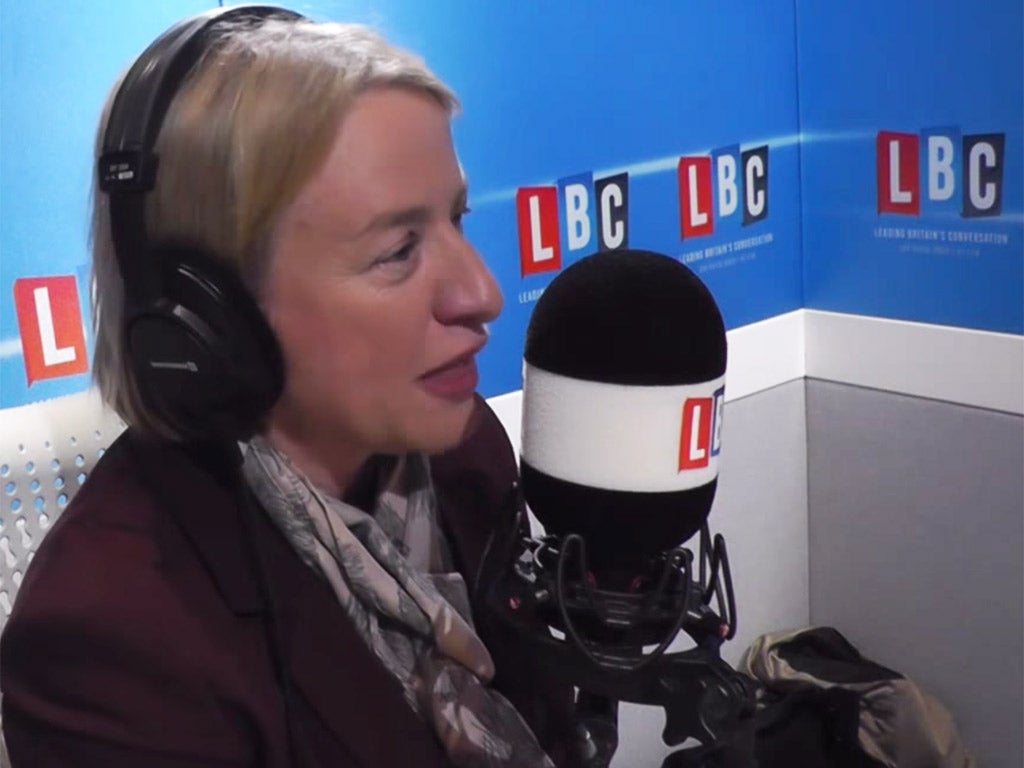
“All of us can have a bad day,” says Caroline Lucas, who won Brighton Pavilion at the last election and became the party’s first MP. She used to be leader but handed over to Natalie Bennett, who gave one of the worst political interviews of all time on Tuesday. “She undoubtedly had a bad day. It was excruciatingly embarrassing. She should have been on top of the figures and wasn’t, but we are human. These things do happen.”
Natalie Bennett coughed and spluttered and left long embarrassing pauses and forgot how much it would cost to build half a million new affordable homes, and how the party would pay for it. “Don’t you think you should have genned up on this a bit more?” asked the politely insistent host Nick Ferrari of LBC Radio. She coughed and spluttered some more.
Bennett apologised almost immediately after her self-confessed “brain freeze”. You could argue that it will do her no great harm in the long run, because what people who might vote for her party want is human beings who act and feel like the rest of us and not like the “robots” of other Westminster parties. At least that is what Greens hope. But the real problem is that Bennett sounded as if she thought the detail didn’t really matter, or at least she didn’t expect to be asked, because the Greens have been used to acting as a pressure group, shouting high-minded aspirations from the sidelines and urging mainstream parties to do better, rather than having actually to cost and do things.
The touchy-feely election brochure just published talks of rebuilding the economy to make it fairer, taking climate change seriously, sorting out the NHS and public transport and ensuring kids have a good education. Greens call these vaguely stated aspirations “the politics of hope”.
But they could yet win a few seats at the election and play a part in a coalition government with Labour, in which case details really will matter. Greens believe in things Ed Miliband can only dream of, such as abolishing the monarchy and renationalising the railways, but they certainly intend to “hold Labour’s feet to the fire” on the environment.
Ms Lucas gamely goes on the attack. “Ed Miliband famously forgot the deficit in his conference speech. Boris Johnson regularly forgets… everything! And he gets away with it. So I think a bit of proportion is useful,” she says. “We had a very bad day on Tuesday, but that was one person, one day.”
That’s not true, though, is it? Things became very much worse immediately after the interview, during a press conference at the Royal Society of Arts. The leader sat flanked by her predecessor, Ms Lucas, and Baroness Jenny Jones. When Bennett was asked whether she felt she had let her party down with the “excruciating” interview, the baroness jumped up instead. “She’s not going to answer that, OK?” Bennett looked up, baffled, and said: “I will. I will…” But the baroness was having none of it. “No. No, no, no. No!”
Instead, Ms Lucas spoke. If Natalie Bennett did not feel utterly humiliated at this point, then she should have. “It was a bad day all round. But it’s not a typical day,” insists Ms Lucas. “One of the things that frustrated me most is that we have heard a lot about how to do good press conferences, and we normally do. This one was organised by people who had not been around the party for so long and yep, it was a bad one.”
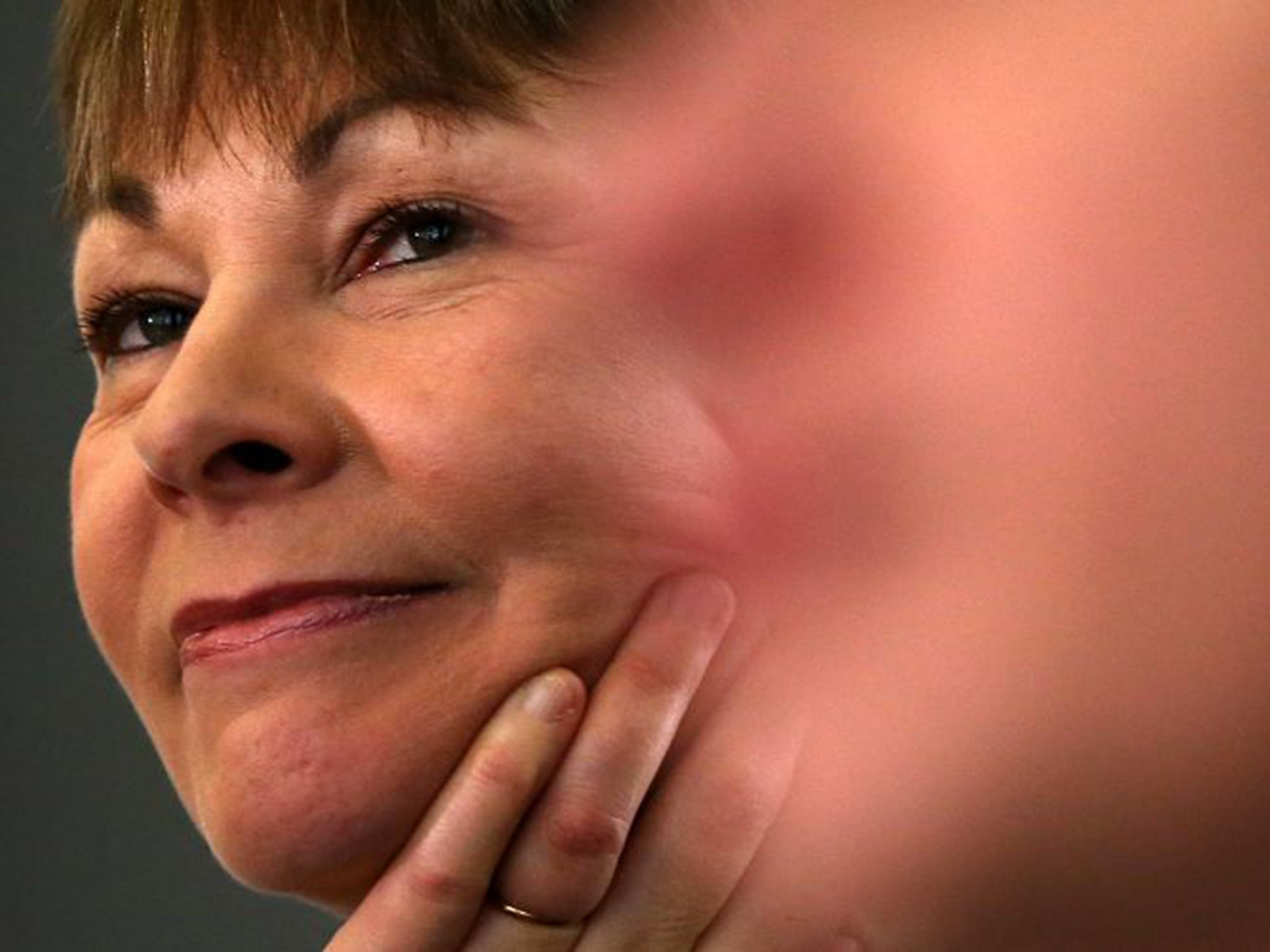
Hang on, Baroness Jones is an old hand, surely. “We have come a long way. It would be a great shame if that day was held to be the mark of where the party is at, because we are an awful lot more professional than that.”
That’s not what the people of her own city have seen locally this week. The Greens have 21 seats on Brighton & Hove City Council, which means they run a minority administration dependent on striking agreements with other parties – except that they can’t even agree among themselves.
The Green Party budget calls for a 5.9 per cent rise in council tax. Getting the other parties to support it would have been hard enough, but six Greens voted against their own party’s budget on Thursday night, because it involves a compromise figure of £18m in cuts to services – and they are absolutely adamant that they want no cuts at all.
The deliciously named party leader Jason Kitcat told members to “grow up and face the facts” and think about the city rather than politics. He has won plaudits from other party leaders for his willingness to work together and get things done – but other Greens have plotted and voted against him. “A lack of self-discipline on behalf of our party has sometimes let us down in the public eye,” says Kitcat. “I won’t deny it. That has added to my challenges, certainly.”
No agreement was reached; no budget was set and they have to meet on Tuesday to try again. That and the national debacle together make the Greens look shambolic, don’t they?
“I don’t think that’s fair,” Ms Lucas says. “Every single party you look at has got different views in it. The Labour Party not so long ago had Tony Blair at one end and Tony Benn at the other. I would challenge the idea that this is unique to the Greens.”
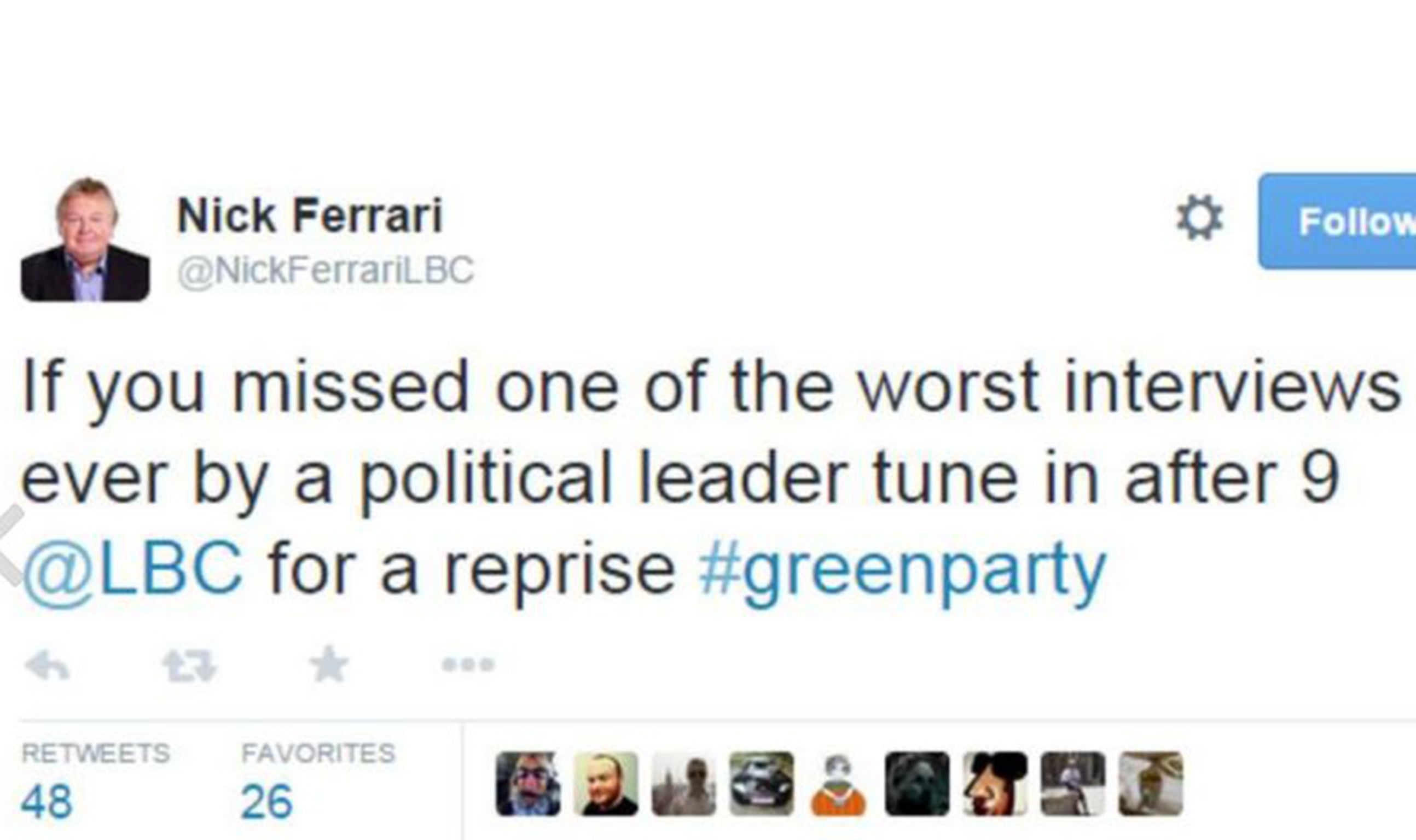
The party does do things differently, though: policy is devised by members and decided at a conference in which all can speak and vote. The leader is just another member, working towards a consensus. “Our vision is to lead by inspiration and vision and encouragement rather than a top-down authoritarian diktat,” Ms Lucas says. “We think that is a more attractive form of leadership, and the membership growth we have seen in recent months is a testament to that as well.”
Perhaps, but the surge has stopped. They’ve added only a few thousand members since January. And maybe the most baffling thing about all this is why she is not leader.
Caroline Lucas is a national figure. People recognise and admire her even though they may not like – or even know – Green policies. Passionate and eloquent, she would be great at poking the eye of David Cameron or Ed Miliband on telly. So why stand down from the leadership in 2012 in favour of somebody nobody had ever heard of?
“We are serious about getting people elected,” she says. “The calculation was that I would still have profile by being an MP. If someone else was able to build profile too with the name of leader, then our chances of getting more and broader coverage would be increased.
“It has worked. We wouldn’t be having this conversation if it were not for Tuesday.”
Yes, but Tuesday happened. “By and large, Natalie has done a pretty good job in the media – and an incredibly good job of being around the country, generating interest and enthusiasm among members and potential members.”
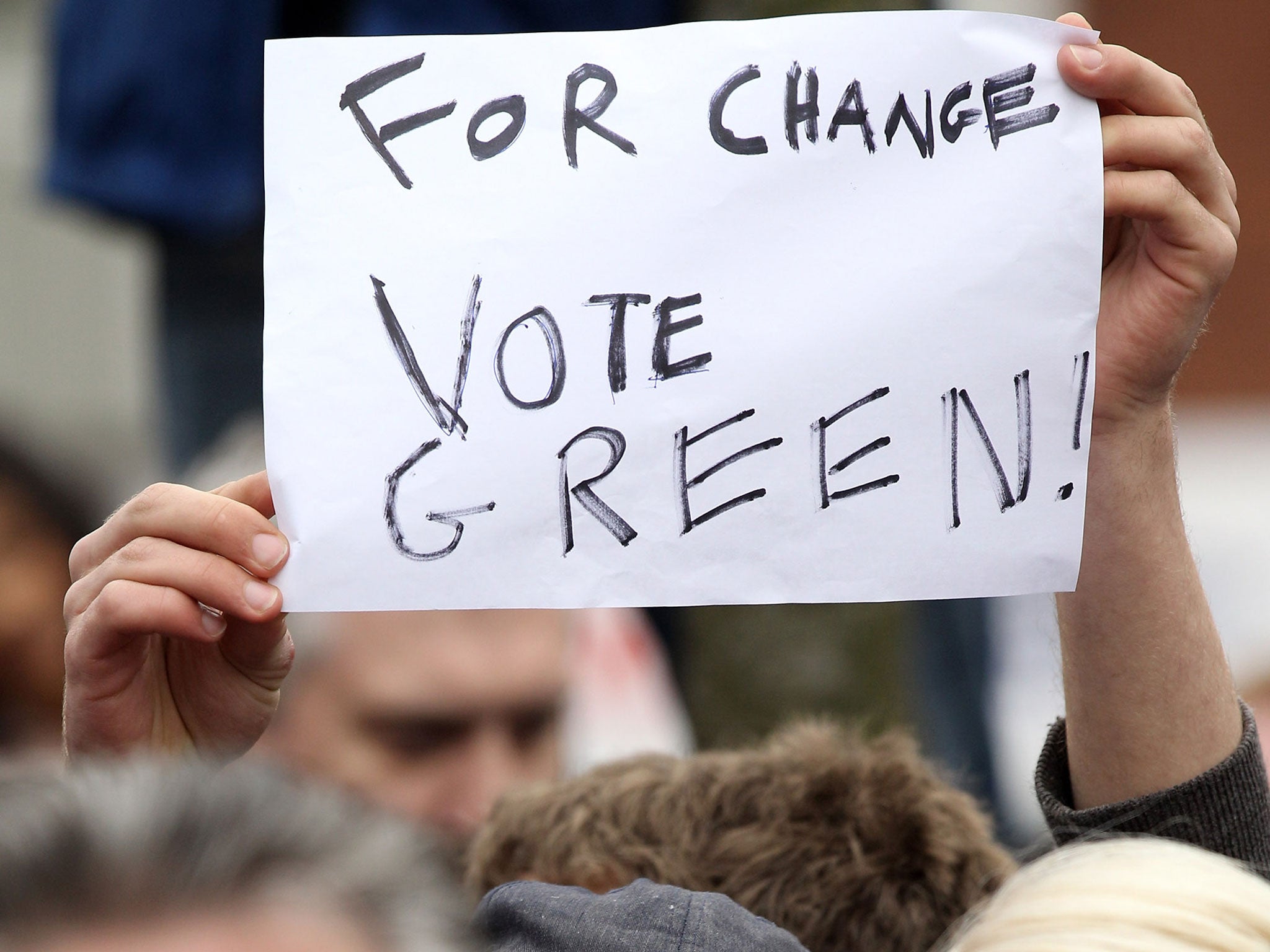
Meanwhile, Brighton is the one place where we can see what Green power looks like. Chaotic, is the answer. A new, fairer pay structure for council workers led to a bin strike and rubbish piling up on the streets of a tourist city. Brighton & Hove Council also happens to have one of the worst recycling rates in the country.
“We are turning the tanker around,” says Mr Kitcat, who claims the problem was inherited from Labour. “We have achieved a huge amount in the most challenging budgetary times imaginable.”
The Greens have pushed through controversial projects such as the i360 viewing tower on the seafront and even a plan to build homes on green land, because they are needed.
“It serves some people to suggest it is chaotic, but between 90 and 95 per cent of the proposals we put forward go through. The city we are responsible for is a much better place than it was three years ago.”
The answer to the question is that the Greens are not mad, but they are certainly very different from the rest. They are either politically naive to the point of incompetence or calling us all to a higher-minded kind of politics. Or both.
“Nobody stands to be a Green politician to get rich, famous and powerful,” Mr Kitcat says. “They do it because they believe in what they are doing.” Incidentally, he is standing down at the next election. He won’t say whether that’s because the Greens have worn him out, but insists society needs his party.
“The Green Party is a very human place. It is imperfect, as most parties are. But most people want Greens to have a voice in government, both locally and nationally. I think most people would agree, even if they are not supporters, they like the fact that our voice is there.”
Additional reporting by Alexandra Leonards
Join our commenting forum
Join thought-provoking conversations, follow other Independent readers and see their replies
Comments